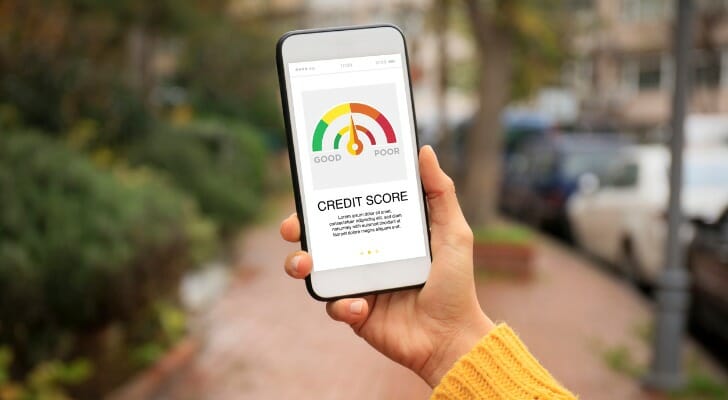Protecting Your Credit During the Coronavirus Crisis
The coronavirus pandemic has upended the U.S. economy, as many Americans have already been laid off, furloughed or had their wages cut. Others are getting sick and being forced to take time off of work. As a result, bills...Wednesday, March 25th 2020, 3:07 pm
By Sam Lipscomb, CEPF®
The coronavirus pandemic has upended the U.S. economy, as many Americans have already been laid off, furloughed or had their wages cut. Others are getting sick and being forced to take time off of work. As a result, bills may go unpaid, leaving your credit score open to negative movement. So during this time, it’s important to keep a close eye on your credit and all other aspects of your financial life. There are also some measures you can take to protect your credit score and, in turn, your long-term financial well-being.
Make sure your financial plan can handle these uncertain times. Talk to a financial advisor today.
Focus on What You Can Control
First and foremost, check your credit score as soon as possible to see if it has already been affected. Double-check your report for any errors that could be unnecessarily pulling down your score. If you’re unsure of where to access your credit report, Equifax, Experian and TransUnion all offer free reports once a year.
Your credit score is calculated using a range of factors, with the most important of these being payment history and credit utilization ratio. As long as you’re paying the minimum amount due every month on your loans, you’ll be able to keep your payment history in good standing. If you’re unable to make payments in full, your credit utilization ratio is likely going to increase.
As such, minimizing your credit card spending can help curb the negative impact on your score. You can also get in touch with your credit card company and ask for a credit line increase, which will help keep your utilization ratio lower. This will also give you the ability to spend more on your card should you need it during the crisis.
You can also look into opening a credit card with a 0% intro APR balance transfer period. Transferring your credit card balances to a card like this can give you months of relief from compounding interest.
It’s important to remember that not all missed payments get reported to credit bureaus, so prioritize the loans that do. Regardless, try your best to make sure that your credit cards and loans remain in good standing. Cable or internet bills, while important, aren’t usually reported to credit bureaus, so you can probably afford to pay those last.
Take Advantage of Relief BenefitsDue to the global nature of the coronavirus crisis, lenders, creditors, credit bureaus, governments and businesses are having to deal with the reality that many Americans won’t be able to make timely payments for the foreseeable future. As a result, several entities are looking into broad-based relief packages aimed at helping people through these tough times.
A handful of state governments have suspended mortgage payments. Citibank has put measures into place designed to help at-risk customers. They involve giving them preferred access to credit line increases and loan forbearance programs. Bank of America has made similar efforts, and has even begun refunding late fee payments to eligible customers.
Credit bureaus have yet to put into place any significant policies in regards to the coronavirus crisis. However, they are receiving pressure from the federal government to implement a broad-based plan to freeze or forgive negative marks on consumer credit reports for the duration of the crisis. Even now, you’re able to add a consumer statement to your credit report explaining your financial situation. These can generally be up to 100 words in length, and they can minimize credit decreases.
Contact Your CreditorsYou’re definitely not alone in having trouble paying your bills during this crisis. Lenders are dealing with a massive influx of inquiries from borrowers. You should still try reaching out to your creditors to see if you can work something out, though. Also be sure to visit their websites, as some lenders have already announced that they’ll be automatically pausing payments. Others won’t be reporting information to credit bureaus during the coronavirus crisis.
In some cases, you may have the option to pause payments without it counting against your credit score or accruing more interest. However, you’ll likely need to provide proof that you’ve lost your job or a significant chunk of your income. In other words, there’s no guarantee that your particular creditor will be willing to work with you. Nevertheless, it’s always worth getting in touch to inquire about your choices.
If you have student loans that you’re having trouble paying back due to a lack of income, you could also think about taking a more mainstream path. Look into a reduced payment plan or a delayed payment plan. While your interest may continue to accrue if you choose one of these options, they’re still better than nothing if you don’t qualify for anything else.
Bottom LineThese are difficult times for many Americans, and lenders understand that. Many are putting programs into effect that are designed to help cushion the financial impact of the coronavirus crisis on credit scores. Those that have yet to do so are being pushed by government entities to aid their customers.
As has become the new norm with the coronavirus crisis, things will likely continue to rapidly change every day. Be sure to stay on top of everything that’s becoming available so you can keep your credit in good shape.
Tips for Managing Your Credit Score- A financial advisor can help you build a financial plan that can withstand economic downturns. SmartAsset’s free tool can match you with suitable financial advisors in your area in just five minutes. Get started now.
- If you’re struggling due to the economic downturn, help is on the way. Here’s what the government is doing to help.
- Everyone wants their credit score to be as high as possible. To achieve this goal, pay off your balances in full, don’t overspend and don’t miss payments. You can also use credit cards to aid your score while earning valuable rewards. If you’re looking for your next credit card, consider using SmartAsset’s guide to 2020’s best credit cards.
Photo credit: ©iStock.com/tolgart, ©iStock.com/Farknot_Architect, ©iStock.com/i_frontier
The post Protecting Your Credit During the Coronavirus Crisis appeared first on SmartAsset Blog.
Information contained on this page is provided by an independent third-party content provider. Frankly and this Site make no warranties or representations in connection therewith. If you are affiliated with this page and would like it removed please contact pressreleases@franklymedia.com
More Like This
March 25th, 2020
December 12th, 2024
December 12th, 2024
December 12th, 2024
Top Headlines
December 12th, 2024
December 12th, 2024
December 12th, 2024










